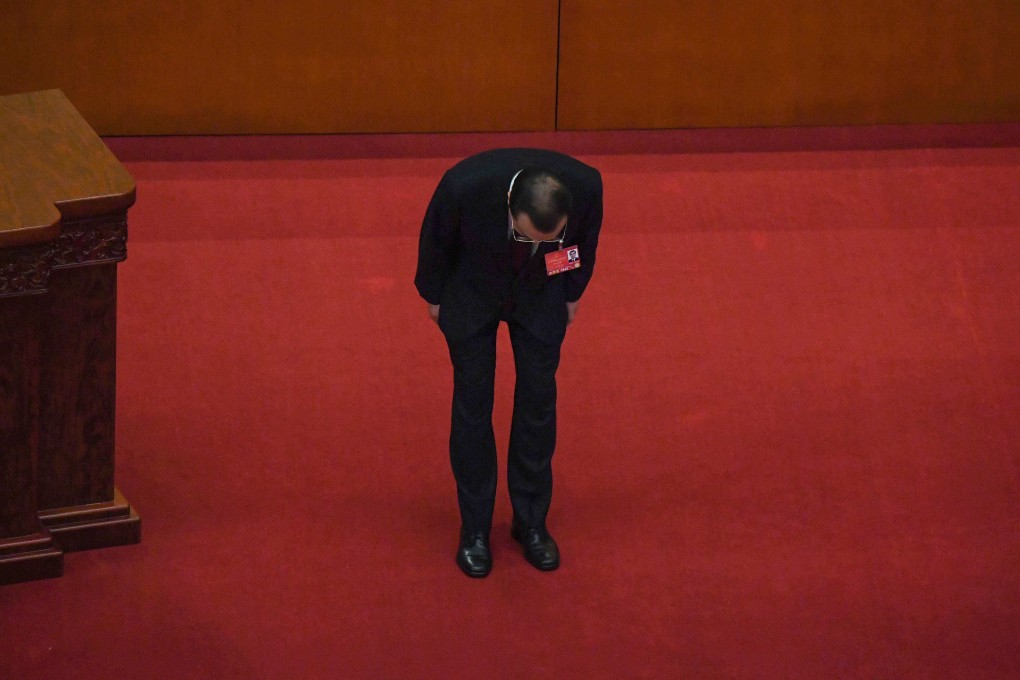Chinese Premier Li Keqiang highlights his caring side as he bows out
- Unlike his predecessors, there was no grand gesture in his last big set piece. Instead there was an emphasis on his efforts to protect people’s livelihoods
- Li steered clear of controversy in his final press conference, but focused on the plight of trafficked women, migrant workers, and delivery drivers

The 66 year-old also portrayed himself as an empathetic government leader who cared about the plight of trafficked women and the underprivileged such as delivery drivers and migrant workers.
There was no dramatic farewell message. Unlike his predecessors Wen Jiabao, who called for “political reform” in his swansong, or Zhu Rongji, who expressed his confidence in the future and proclaimed “we have a clear conscience” on the same occasion, Li highlighted his contribution to keeping the economy afloat during difficult times

Li went on to outline how he promised to develop the economy and improve people’s livelihoods in his first press conference as premier nine years ago, and how he has sought to fulfil that promise by streamlining red tape, stimulating the market and providing millions of jobs.